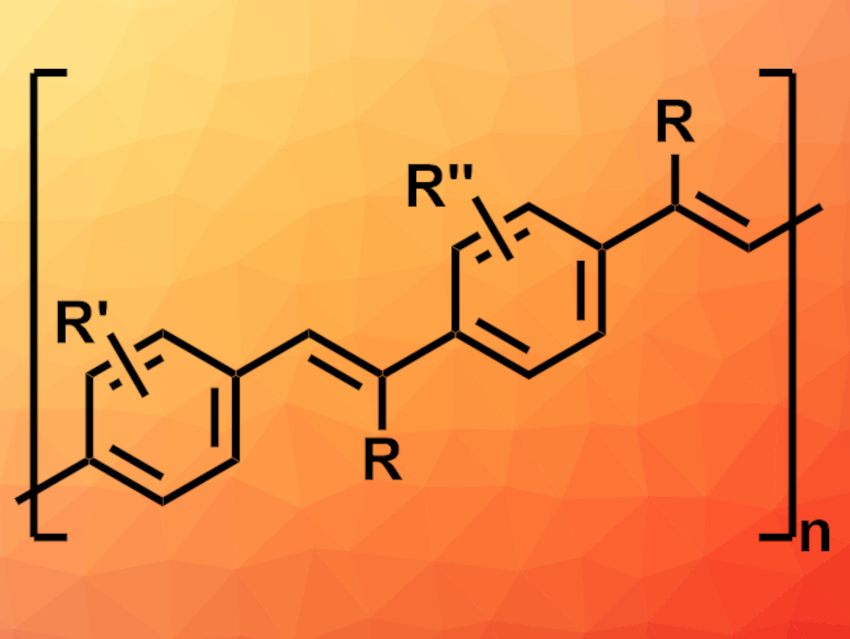Poly(arylene vinylene)s (PAVs) are polymers that are composed of alternating arylene and vinylene groups. These π-conjugated materials can be useful, e.g., in optoelectronics. Carbene-based cross-coupling reactions can be used to form carbon–carbon bonds, but have rarely been used in polymer synthesis.
Jianbo Wang, Peking University, Beijing, China, and Shanghai Institute of Organic Chemistry, Chinese Academy of Sciences, and colleagues have developed a palladium-catalyzed carbene coupling reaction of bis(N-tosylhydrazones) and 1,4-bis(bromomethyl)arene derivatives for the synthesis of PAVs (general structure pictured). The team used Pd2(dba)3 (tris(dibenzylideneacetone)dipalladium) as a catalyst, tri(2-furyl)phosphine as a ligand, tBuOLi as a base, and 1,2-dichloroethane (DCE) or toluene as the solvent. The reactions were performed at 80 °C.
The team obtained a variety of polymer products in excellent yields and with high E-vinylene selectivity. The synthesized polymers show good thermal stabilities and interesting optical properties.
- Palladium-Catalyzed Carbene Coupling Polymerization: Synthesis of E-Poly(arylene vinylene)s,
Xing-Qi Yao, Yi-Song Wang, Jianbo Wang,
Chem. Commun. 2022.
https://doi.org/10.1039/d1cc06587d




